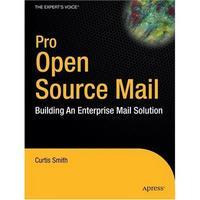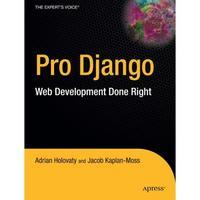

JasperSoft's JasperServer Professional, eXcito's Bubba Server and more.
If you are charged with the task of leveraging IT to help your company make better business decisions, check out the new JasperServer Professional from JasperSoft. Built on the JasperServer Open Source Project, this product is a business intelligence (BI) server that offers ad hoc reporting and analysis intended to simplify the creation of customized reports. JasperServer Professional offers, according to its maker, “everyone in an organization the power to create his or her own BI reports” that are tailored to his or her own needs. In addition, the server is certified with a wide range of third-party platforms, including Apace Tomcat, MySQL, various Linux distros and Unices and more. Customers opting for the subscription service can obtain enterprise-class support and training, indemnification, commercial licensing, access to the customer portal and so on. The Open Source edition of JasperServer, as well as an evaluation edition of the commercial product, are available for download at JasperSoft's Web site.
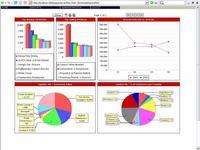
No, friends, this new computer from eXcito has nothing to do with our president emeritus, Bill Clinton! Bubba Server, recently released by eXcito of Sweden, is a diminutive, multifunction, Debian-powered device for the home or SOHO, dubbed by its producer as a “lifestyle home-server”. After connecting Bubba to broadband, it's ready to function as any number of servers for you right out of the box: file, Web, FTP, backup, mail (IMAP, SMTP, POP) and so on. Bubba's main features, sayeth eXcito, are the ability to “access your files and different e-mail accounts from any location”, its small footprint (18 x 11 x 4cm) and quiet, fanless operation (max. 28dB in active mode). You can acquire your own Bubba with either an 80GB or 250GB hard drive.
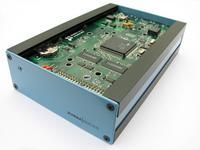
While the heavy-hitting PC makers have shipped and supported Linux desktops worldwide, here at home in the US they have been intimidated into keeping their cupboards bare. What would we do without our scrappy entrepreneurs who have built their Linux-PC empires from scratch? In order for the Linux desktop finally to get traction, the big guys need to bless it and support it, and perhaps Lenovo's new ThinkPad T60p Linux Mobile Workstation will finally ignite some momentum. With the T60p, Lenovo is starting with the high end, as this device is intended mainly for electronic engineers doing integrated circuit and board-level design who desire mobility. Lenovo is currently certifying requisite design apps from companies such as Cadence, Synopsys and Mentor Graphics, which will run on top of SUSE Linux Enterprise Desktop 10 (SLED 10); the latter is fully supported via Lenovo's Help Center. One drawback to the T60p is that, although SLED 10 is supported, it does not come pre-installed. We hope that the efforts invested here will trickle down.
It is exciting to see a range of firms leveraging the open-source model to provide high-end applications. Openbravo (both the company and app name) finds its niche as an open-source, Web-based enterprise management solution for small and mid-sized enterprises. The application provides for fully integrated management of key business functions such as CRM, billing, data, procurement, inventory, projects, services, production, financial/accounting and business intelligence. Openbravo claims that its architecture is “revolutionary”, utilizing “a unique combination of MVC and MDD development frameworks”, as well as its own engine for generating application binaries from the MDD dictionary, called WAD. New features in the new r2.11 include several new modules, expanded Web Services features, an improved interface and expanded documentation.
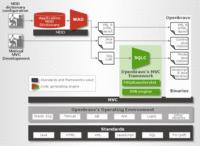
Linux companies love colors. We've seen red hats, black ducks, yellow dogs and blue bicuspids. What could be next, pray tell? Trolltech says, green phones! The company's brand-new product, the Qtopia Greenphone, is an open, Linux-based mobile device for application developers of all stripes, allowing them to “create, modify and test Linux-based mobile phone applications on a working GSM/GPRS device” that also has a functioning camera. Trolltech offers Greenphone as part of its software development kit containing the Qt-based Qtopia Phone Edition, an application platform and a UI for Linux-based mobile phones. The company says that Greenphone offers a number of product features and benefits, including an open software stack, accelerated time to market, simplified development processes and reduced costs. Trolltech also sees Greenphone as the first in a series of open mobile devices. Next up, mauve?
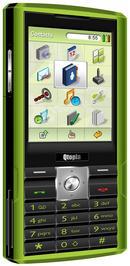
Like Trolltech, Movidis, Inc., has gone “green” as well, only theirs is related to its eco-friendliness. The firm's new Revolution x16 Server is built to provide a single architecture that will perform multiple server functions, for both applications and storage, while consuming a mere 50 Watts. Movidis' approach is to utilize Cavium Networks' OCTEON CN3860, a 16-core, 64-bit MIPS processor that will execute nearly 20-billion instructions per second. According to Movidis, the OCTEON is “optimized for moving data around a network—just what most servers spend their cycles on”. The Revolution x16's other key features are integrated accelerators that perform encryption, compression and TCP packet processing in hardware rather than software, as well as Debian burned into the on-board Flash. The Revolution x16 is available in 1U or 2U rackmount enclosures, with either four or eight SATA or SAS drives for a maximum capacity of 6TB on a single 2U RAID system.
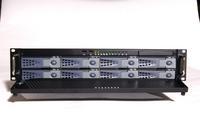
The folks at rPath have upgraded their rBuilder product to version 2.0, a platform for creating and maintaining Linux-based software appliances. In essence, rBuilder allows the ISV to import a desired application and combine it with the company's own rPath Linux and create either a software, hardware or virtual appliance image. The result, says rPath, is a reduction in software complexity and cost “by making the operating system disappear”. With the appliance as a solution, the ISV can provide its customers with a simplified installation, integration and maintenance process. New in version 2.0 are improved appliance administration, easier customization of administrative interfaces, simplified updates delivered via the Internet to customer locations and the ability to create CD/DVD images for demonstration purposes so that customers can try before they buy.
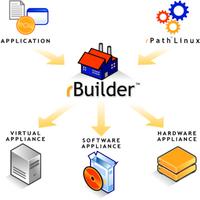
Yes, dear readers, you are getting your money's worth! Because Apress has so many sweet books coming out, your editor failed to pick just one. Book one: Curtis Smith's Pro Open Source Mail is a “comprehensive guide to managing the most important mail-related services, including user administration, mail transfer agents, virus protection, spam and mail filtering, Web-based mail and mailing list maintenance”. Some applications and tools covered include Sendmail, Qpopper, Dovecot, SpamAssassin, ClamAV and SquirrelMail. Book two: Adrian Holovaty and Jacob Kaplan-Moss' Pro Django is a tutorial and reference about the red-hot Django Web development framework. The authors cover everything from creating the components that power a Django-driven Web site to utilizing advanced Django features (such as outputting RSS and PDF and caching). Also included is a range of detailed reference information, such as configuration options and commands. Holovaty is a co-creator of Django; Kaplan-Moss is its lead developer.
